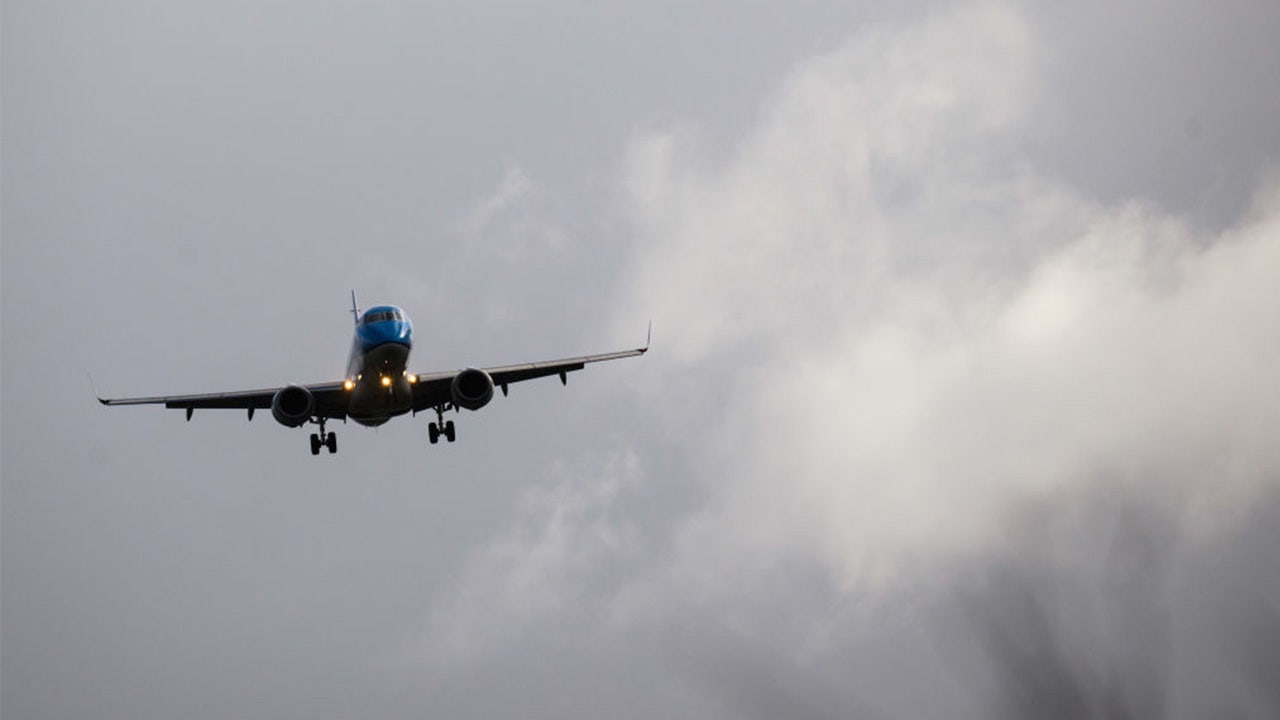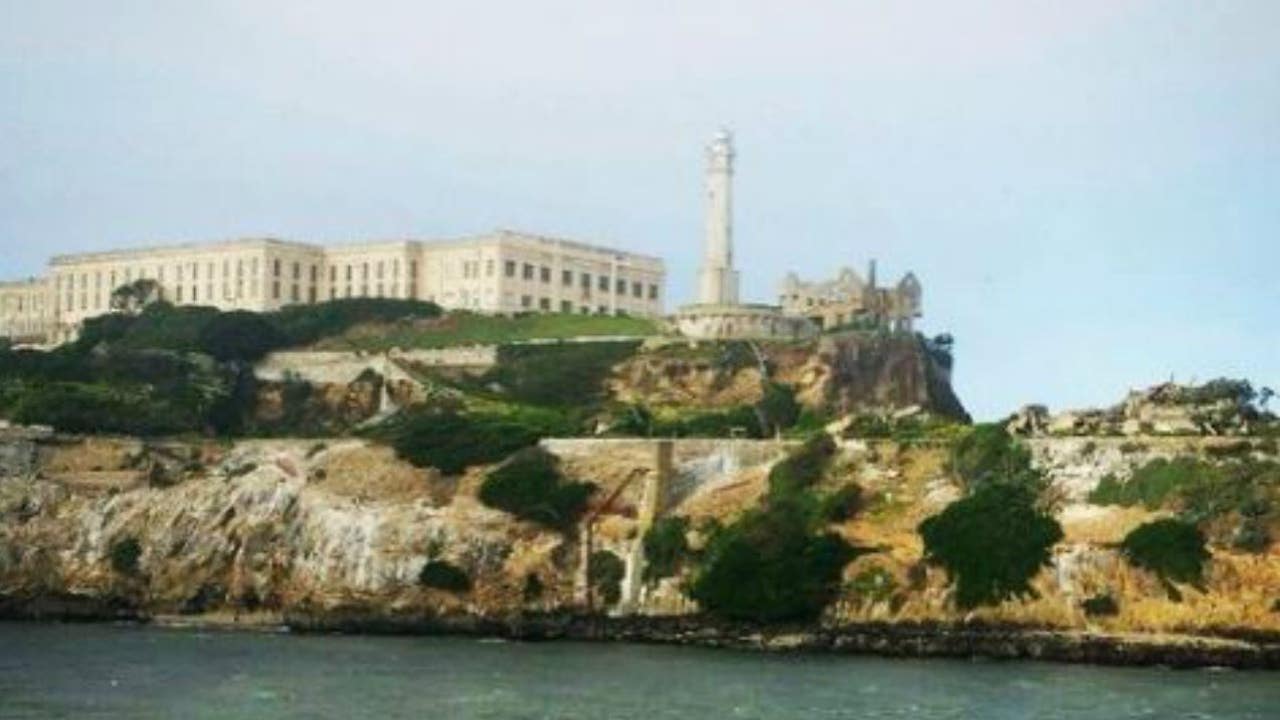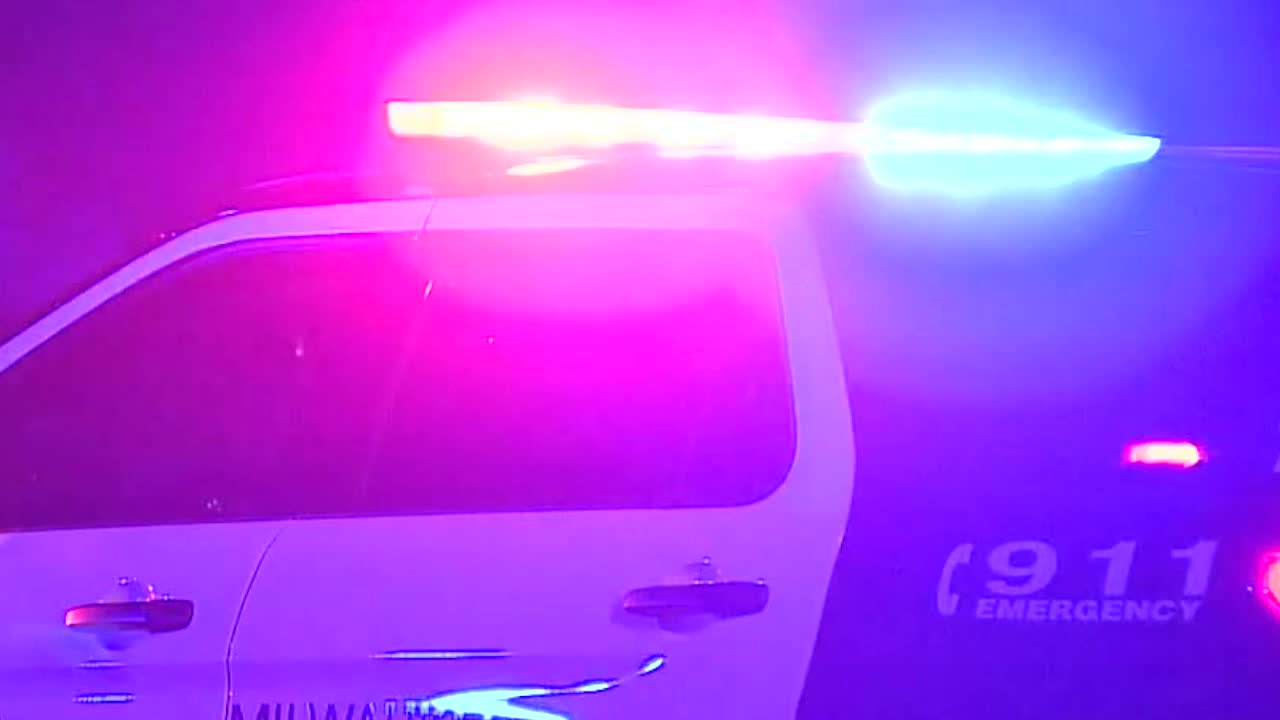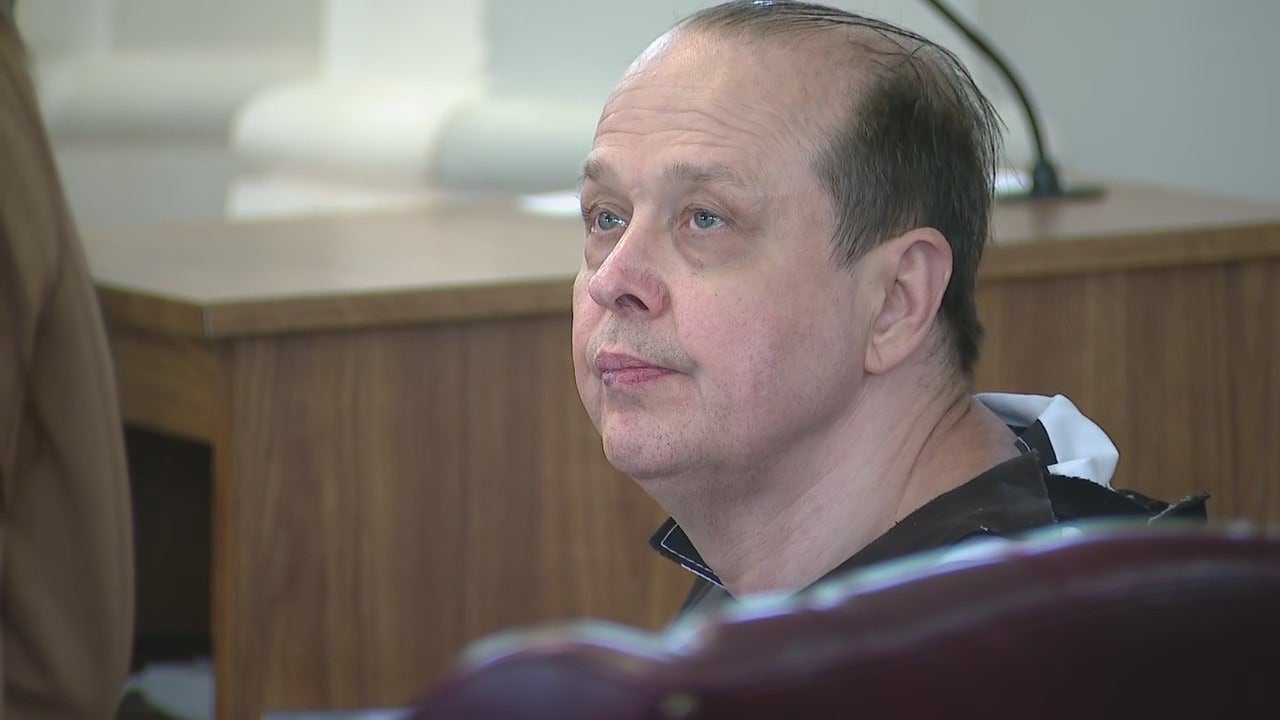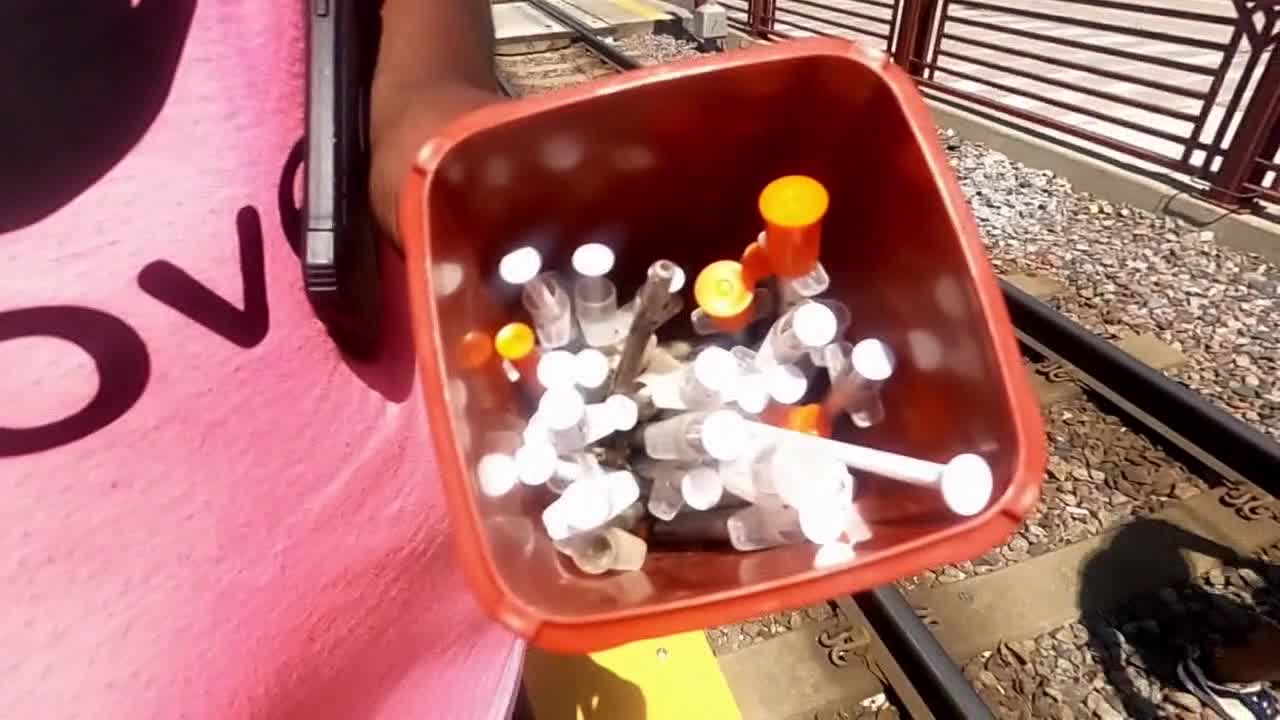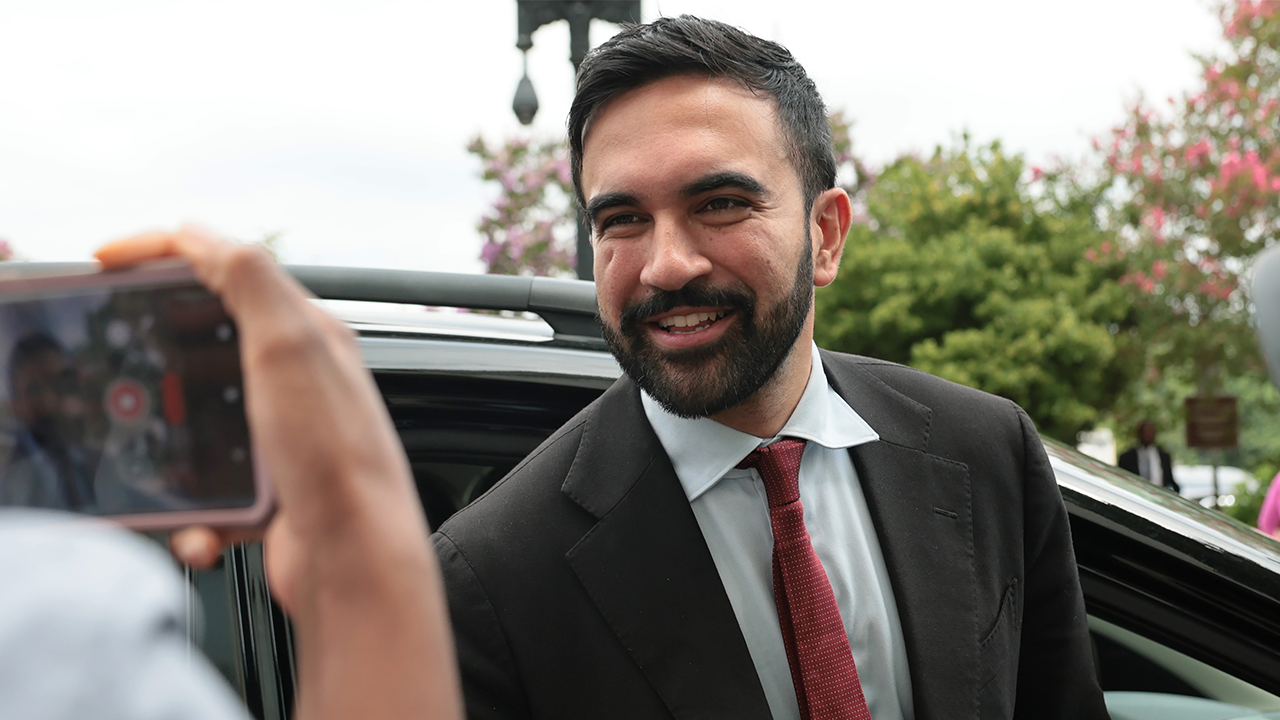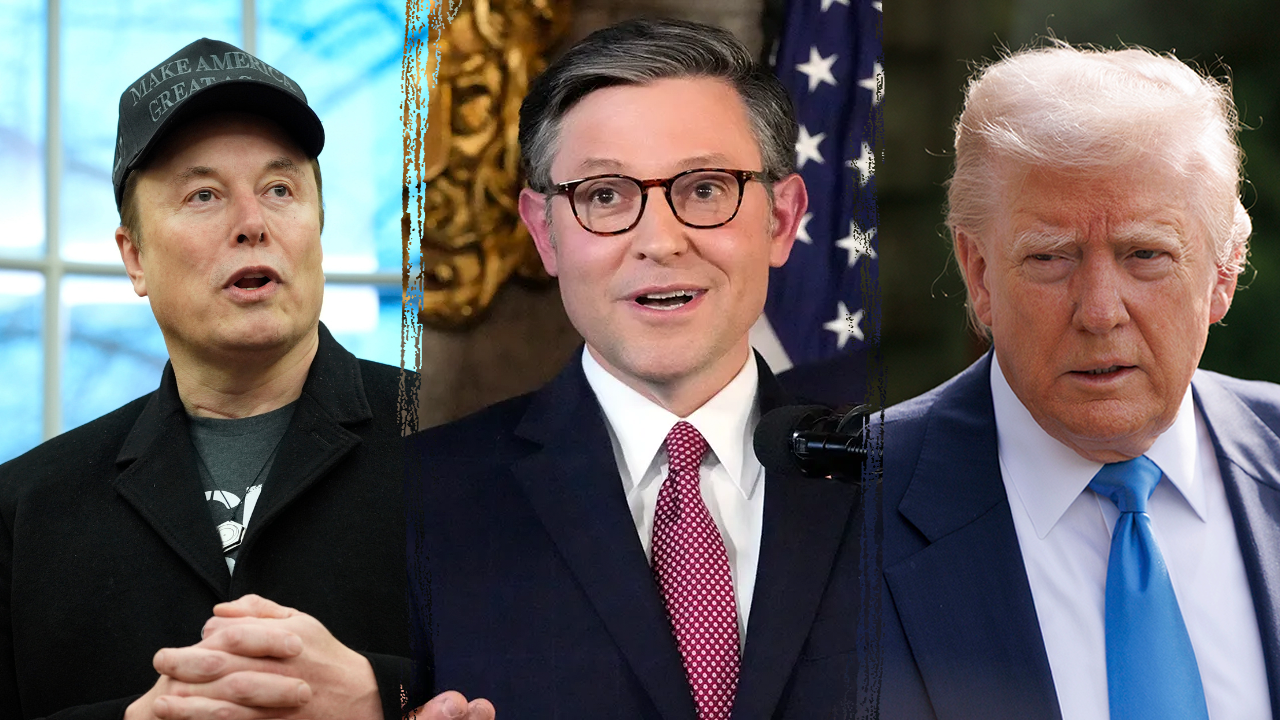World
OPEC withholds media access to Reuters, Bloomberg, WSJ for July event
/cloudfront-us-east-2.images.arcpublishing.com/reuters/CCIBM23O3FMXNH5VSYIQQ5WE3Y.jpg)
June 28 (Reuters) – OPEC has withheld media access to reporters from Reuters, Bloomberg and the Wall Street Journal to cover a meeting of oil industry CEOs with energy ministers from OPEC and its allies, reporters and several people familiar with the matter said on Wednesday.
The three media organizations are among the world’s leading suppliers of financial news and information. They compete to cover news in real time from events such as OPEC+ meetings, which can have a material impact on the price of oil and the global cost of energy.
The Organization of the Petroleum Exporting Countries and its allies, known as OPEC+, includes top oil producers Saudi Arabia and Russia. OPEC+ pumps more than 40% of the world’s oil supply.
OPEC declined to comment on why reporters from the three media organizations were not invited to cover the OPEC-hosted July 5-6 seminar in Vienna.
“We believe that transparency and a free press serve both readers, markets and the public interest, and we object to this restriction on coverage,” a spokesperson for Reuters, the news and media division of Thomson Reuters Corp (TRI.TO), said on Wednesday.
“Reuters will continue to cover OPEC in an independent, impartial and reliable way, in keeping with the Thomson Reuters Trust Principles.”
Reporters at Reuters received an email on Tuesday stating that earlier accreditation was not an invitation to attend. Bloomberg and the Wall Street Journal reporters received a similar communication, sources familiar with the matter said.
“We are very concerned by the prospect of OPEC excluding certain journalists, including from Bloomberg, from next week’s seminar,” Bloomberg News said in a statement.
“For the sake of market transparency, we strongly advocate for OPEC to allow journalists from relevant global news outlets to attend.”
The Wall Street Journal did not respond to a request for comment.
This would be the second consecutive OPEC+ event in which OPEC has restricted media coverage. The same media groups were denied access to OPEC’s Vienna headquarters during a June 4 oil policy meeting. OPEC gave no reason for excluding the three organizations from the previous policy meeting in June.
The email from OPEC’s public relations department to Reuters reporters on Tuesday stated press participation was by invitation only and that earlier accreditation – which OPEC called “self accreditation”- would not grant access to the event.
OPEC had sent emails earlier in June to all members of the Reuters team who had applied for accreditation, saying their registration had been completed and that OPEC was looking forward to welcoming them to the seminar. The email included a QR code to be presented with ID at in-person registration for the event.
OPEC sent an email on Tuesday inviting reporters at other media organizations to attend, the sources said. Those included the Financial Times and trade publication Argus, as well as S&P Global Commodity Insights, known as Platts, the sources said. The communication stated “this email serves as your personal invitation,” according to a copy forwarded to Reuters.
Argus confirmed it had been invited and would attend. The Financial Times declined to comment and Platts did not respond to a request for comment.
Reporting by OPEC team, editing by Simon Webb and Rosalba O’Brien
Our Standards: The Thomson Reuters Trust Principles.

World
Peacock Announces Biggest Price Increase Ever, Will Test Stripped-Down Plan

ad
World
UK government to lower voting age to 16 before next national election despite strong conservative opposition
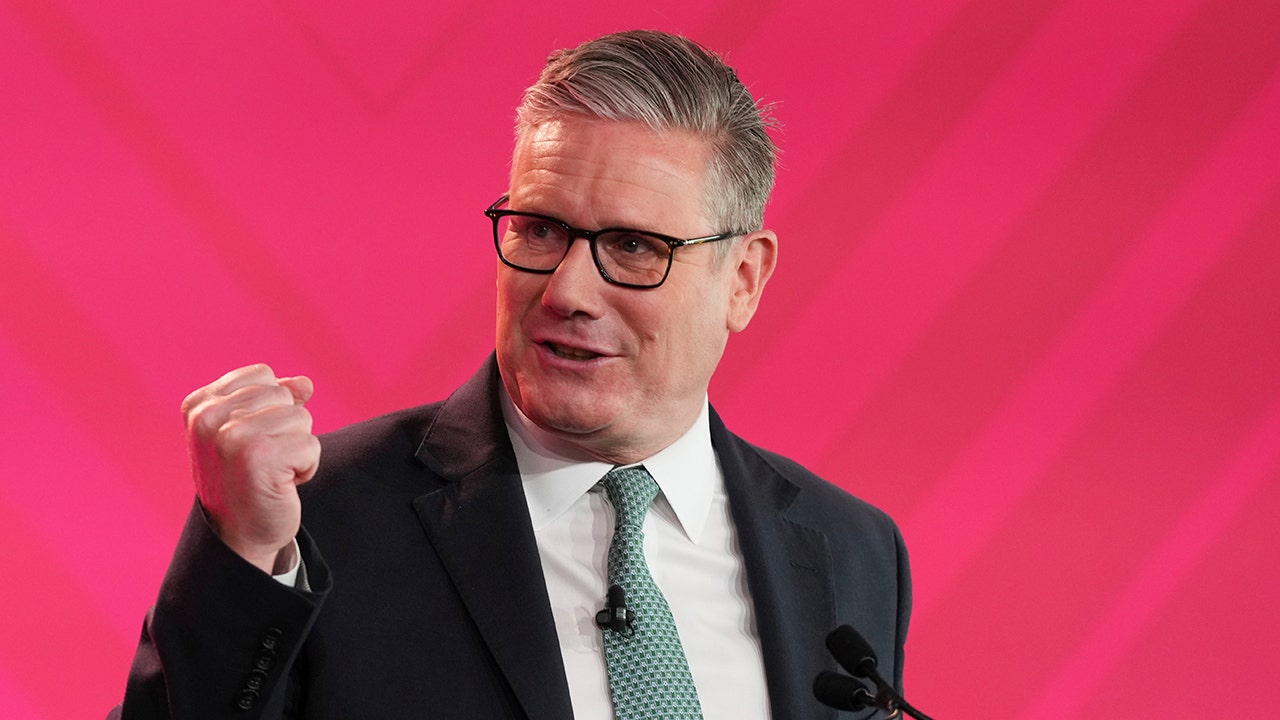
NEWYou can now listen to Fox News articles!
The United Kingdom is lowering the voting age from 18 to 16 before the next national elections – a move which opposition figures decry as a way to sway the electorate to benefit the left.
The U.K. government, controlled by the Labour Party, announced Thursday that 16- and 17-year-olds will be given the right to vote as part of other new “seismic changes.” Other election reforms include extending voter ID to bank cards, issuing new rules meant to “guard against foreign political interference and abuse of campaigners,” and tightening laws restricting foreign donations to British political parties.
In an accompanying policy paper included in the announcement, Deputy Prime Minister Angela Rayner said that “declining trust in our institutions and democracy itself has become critical, but it is the responsibility of government to turn this around and renew our democracy, just as generations have done before us.”
UKRAINE’S ZELENSKYY NAMES NEW PRIME MINISTER FOR FIRST TIME SINCE RUSSIA’S WAR BEGAN
Britain’s Prime Minister Keir Starmer speaks at a civil society summit in London, Thursday, July 17, 2025. (AP Photo/Frank Augstein, Pool)
“I think it’s really important that 16- and 17-year-olds have the vote because they’re old enough to go out to work, they’re old enough to pay taxes, so to pay in. And I think if you pay in, you should have the opportunity to say what you want your money spent on, which way the government should go,” British Prime Minister Keir Starmer told reporters on Thursday. “I’m really pleased that we’re able to bring more young people into our democracy.”
“Young people already contribute to society by working, paying taxes and serving in the military. It’s only right they can have a say on the issues that affect them,” Rayner wrote on X. The deputy prime minister also elaborated in a statement, adding: “We cannot take our democracy for granted, and by protecting our elections from abuse and boosting participation we will strengthen the foundations of our society for the future.”
The minimum age of service in the British Armed Forces is 16, but those under 18 need written consent from a parent or guardian and may not be deployed to combat zones.
British opposition politicians accused the Labour Party of trying to manipulate the electorate in their favor by lowering the voting age.
“Why does this government think a 16‑year‑old can vote but not be allowed to buy a lottery ticket or an alcoholic drink, marry or go to war, or even stand in the elections they’re voting?” Member of Parliament (MP) Paul Holmes, a conservative, said in the House of Commons on Thursday. “Isn’t the government’s position on the age of maturity just hopelessly confused?”
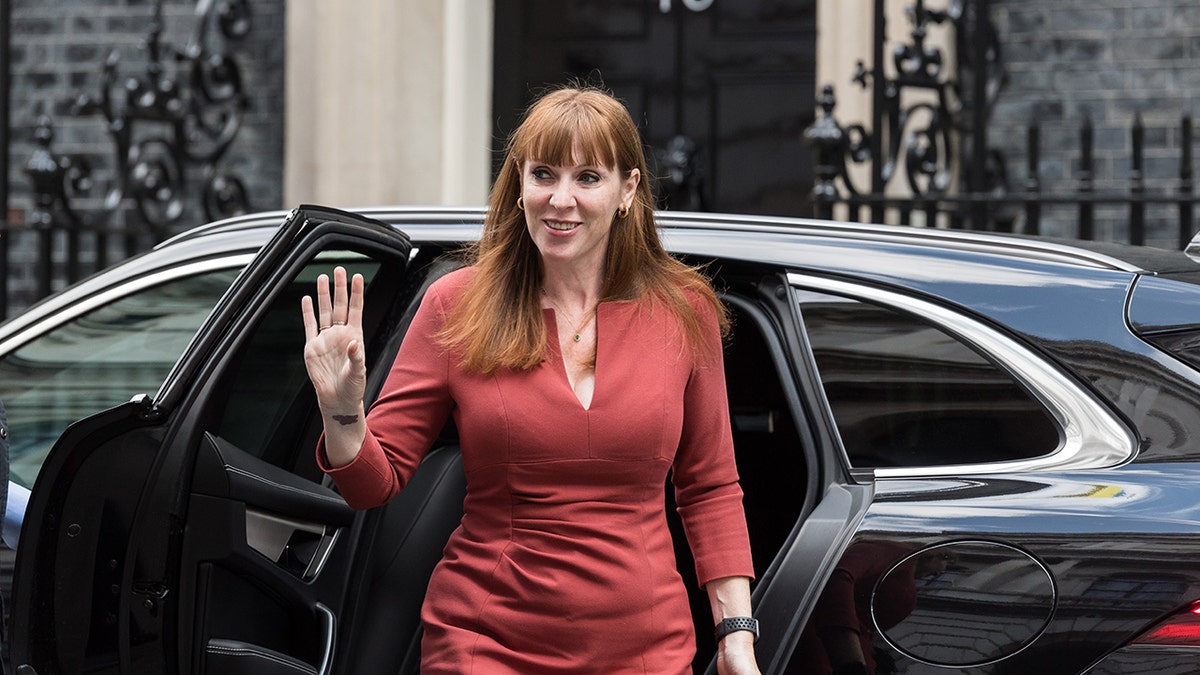
Deputy Prime Minister and Secretary of State for Levelling Up, Housing and Communities Angela Rayner arrives in Downing Street to attend the weekly Cabinet meeting in London, United Kingdom on July 15, 2025. (Wiktor Szymanowicz/Anadolu via Getty Images)
UK TO ROLL OUT RED CARPET IN ‘UNPRECEDENTED’ SECOND TRUMP VISIT HOSTED BY KING CHARLES
Holmes accused Labour of “governing by press release” and questioned whether allowing bank cards – which do not include photographs – as a form of voter ID will undermine security measures at the ballot box.
Nigel Farage, leader of the right-wing Reform UK Party, said giving 16- and 17-year-olds the right to vote “is an attempt to rig the political system.”
“The problem with this is, not only do half of youngsters not want the vote, but they have to stay at school now until they’re 18,” Farage said in a video shared to X. “The educational establishment is full of left-wing prejudice, is full of anti-reform bias, and frankly, if 16 to 18 year olds at school are going to be able to vote, we’re going to have to make sure that our education system is teaching kids to make their own minds up and not indoctrinating them.”
The change still requires parliamentary approval but was a campaign promise by the Labour Party, which won last year’s general election and holds majority control. The next general election is in 2029.
Rayner noted that 16- and 17-year-olds can already vote in Scotland and Wales in local elections and country-level parliamentary elections. The minimum voting age for local elections in England and Northern Ireland is 18.
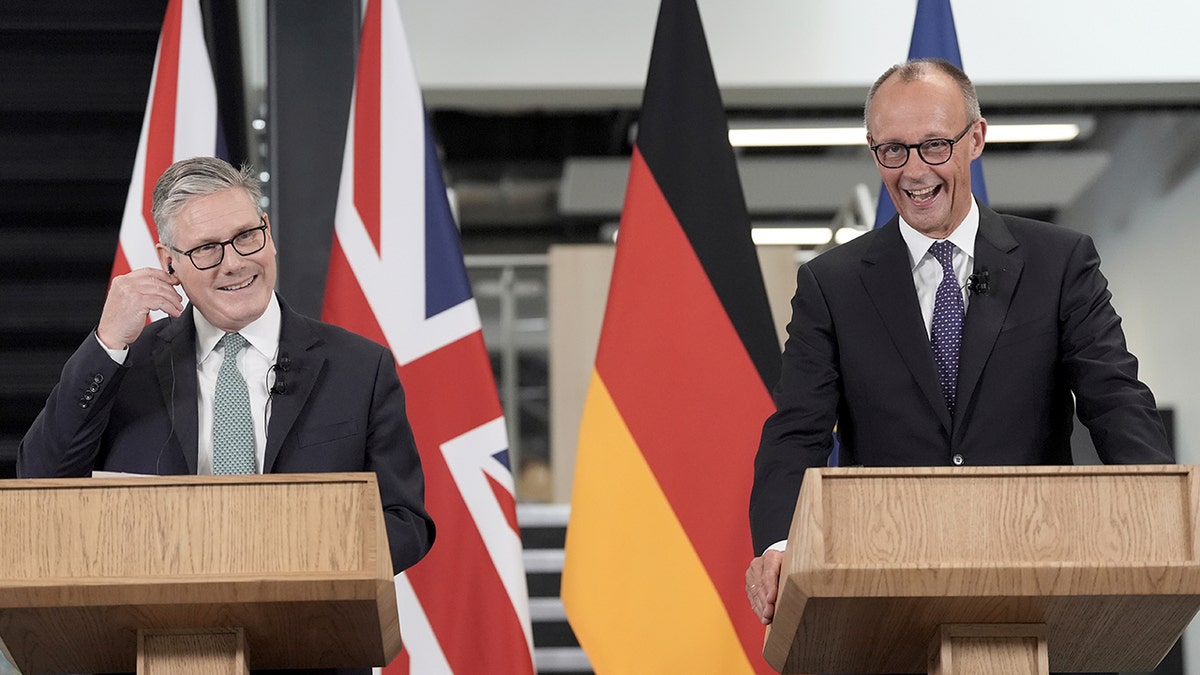
Britain’s Prime Minister Keir Starmer, left, and German Chancellor Friedrich Merz hold a press conference during a visit to the Airbus factory in Stevenage, England, Thursday July 17, 2025. (Stefan Rousseau/Pool via AP)
In an opinion piece in the British newspaper “The Times,” Rayner, who was a single mother at the age of 16, said the change makes 1.6 million 16- and 17-year-olds eligible to vote in the United Kingdom, which has a population of roughly 68 million.
“This is about fairness and transparency and giving the young a stake in our country’s future, bringing them into our communities, not excluding them,” Rayner wrote. “It’s about delivering on our manifesto to commitment to secure votes at 16. But it’s also about strengthening our electoral system so that it is fit for the 21st century — because we cannot take our democracy for granted.”
World
Varna mayor's arrest sparks widespread protests in Bulgaria
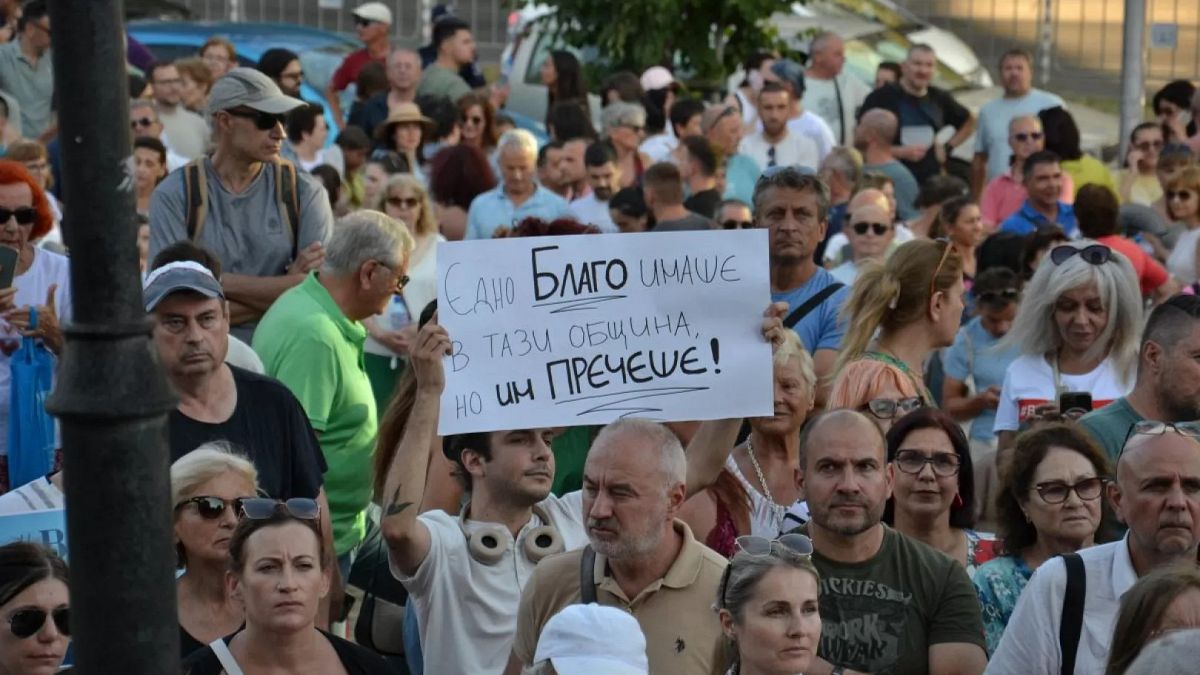
By Euronews
Published on
•Updated
ADVERTISEMENT
The arrest of Varna’s Mayor Blagomir Kotsev has escalated from a local courtroom drama into a regional diplomatic flashpoint, as protests sweep Bulgaria and extend to Brussels, Germany and the UK.
Kotsev, a prominent figure from the opposition “We Continue the Change – Democratic Bulgaria” party, was detained on 8 July on allegations of embezzling public procurement funds through a catering contract.
He has firmly denied all charges, describing the case as politically motivated. The controversy deepened when a key witness later admitted their testimony had been coerced.
On Thursday, during a hearing in the Sofia appellate court, prosecutors presented 59 pages of additional evidence, which Kotsev’s defence dismissed as irrelevant and part of a smear campaign.
The mayor’s arrest has triggered strong reactions not only from within Bulgaria’s reformist circles but also from European political allies.
Vasil Terziev, the mayor of Sofia, condemned the detention as a targeted act of selective justice. Meanwhile, the Renew Europe group in the European Parliament, of which Kotsev’s party is a member, labelled the arrest “political repression” and a threat to EU democratic norms.
In response, protests have broken out across Bulgaria, with slogans such as “The law is not a weapon.” Supporters of Kotsev have also mobilised abroad, organising demonstrations in Brussels, Berlin and London.
Bulgarian-German relations on the line?
The involvement of the German ambassador at a recent protest has heightened tensions between Sofia and Berlin, prompting an unprecedented reaction from the Bulgarian Foreign Ministry.
Germany’s ambassador to Bulgaria was seen joining one of the protests in Varna, standing in apparent solidarity with Kotsev’s supporters, in an unusual diplomatic action that sparked swift retaliation from Sofia.
The Bulgarian Foreign Ministry issued a formal diplomatic note, criticising what it perceived as direct interference in the country’s internal judicial affairs.
Germany has not yet released an official response, but the ambassador’s presence reflects Berlin’s broader concern over rule-of-law issues within some EU member states.
Meanwhile, three other ambassadors — from France, the Netherlands and the UK — attended Kotsev’s hearing on Thursday.
At a time when Bulgaria is seeking to solidify its position within the eurozone and Schengen area, the brewing crisis puts Sofia under pressure to demonstrate genuine progress on judicial independence and anti-corruption reforms.
In its 2024 rule of law report on Bulgaria, the European Commission expressed lingering concerns over the remaining reforms Sofia is expected to undertake.
-

 News1 week ago
News1 week agoVideo: Trump Compliments President of Liberia on His ‘Beautiful English’
-

 News7 days ago
News7 days agoVideo: Clashes After Immigration Raid at California Cannabis Farm
-

 Politics1 week ago
Politics1 week agoJournalist who refused to duck during Trump assassination attempt reflects on Butler rally in new book
-
Business1 week ago
Commentary: Does America need billionaires? Billionaires say 'Yes!'
-
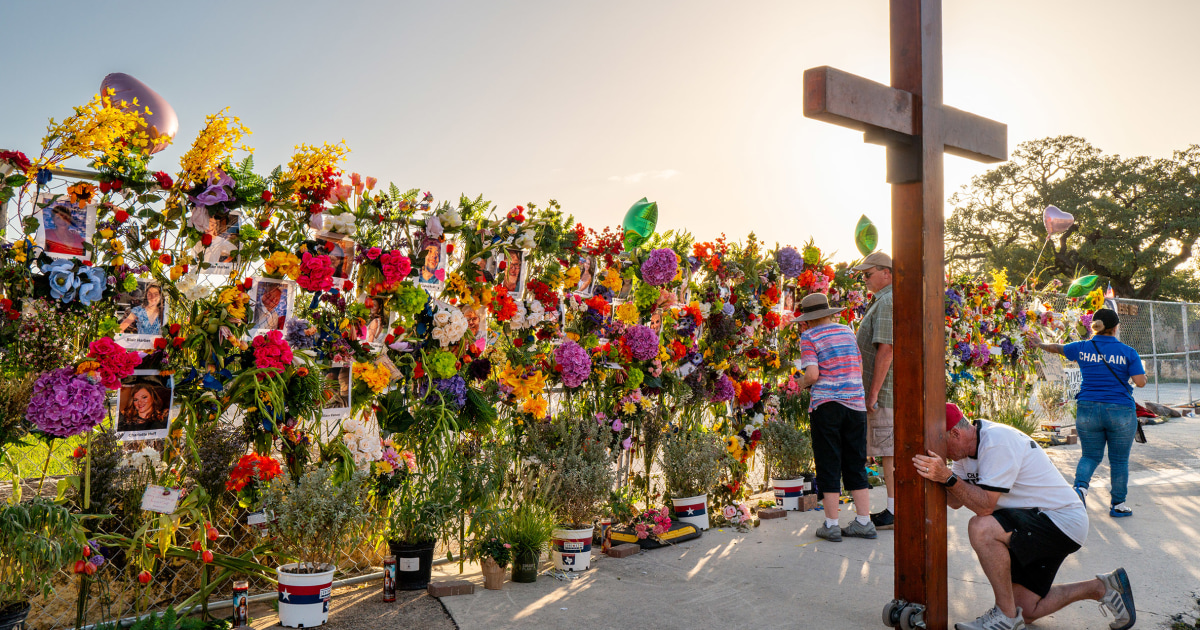
 News7 days ago
News7 days agoTrump heads to Texas as recovery efforts from deadly flood continue
-

 World7 days ago
World7 days agoNew amnesty law for human rights abuses in Peru prompts fury, action
-
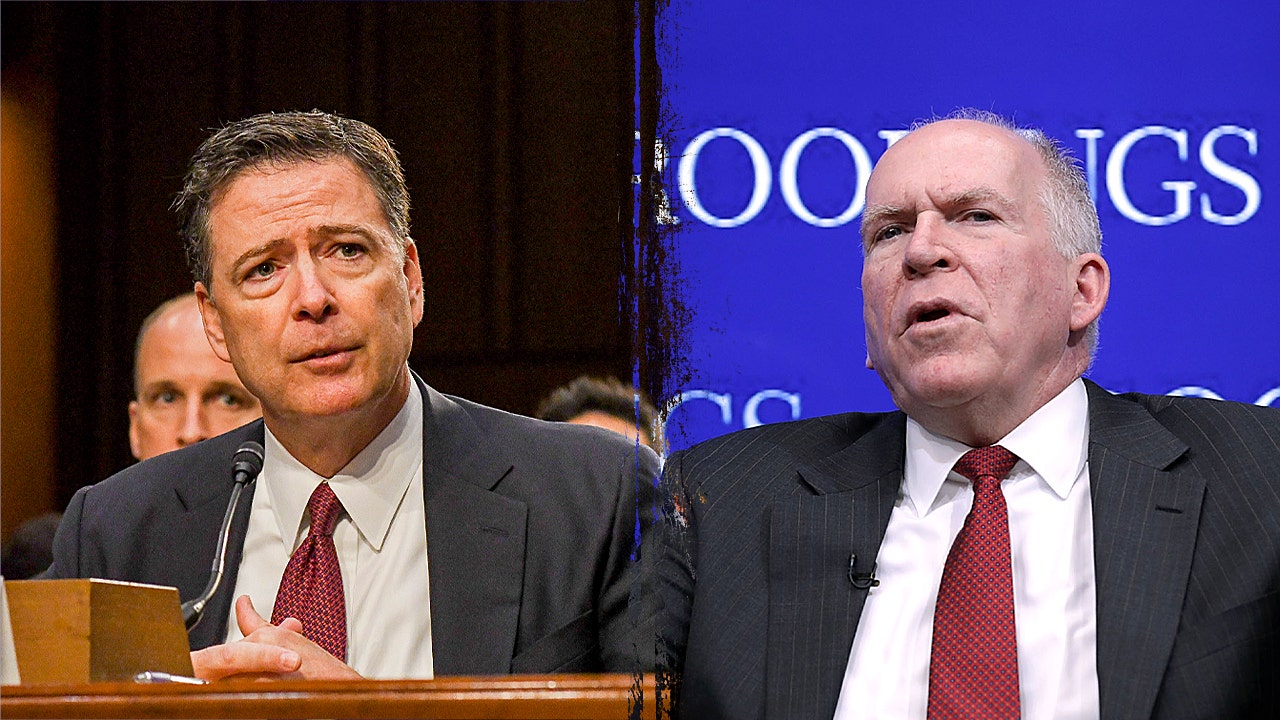
 Politics1 week ago
Politics1 week agoObama officials used dossier to probe, brief Trump despite knowing it was unverified 'internet rumor'
-

 News1 week ago
News1 week agoDOGE keeps gaining access to sensitive data. Now, it can cut off billions to farmers
